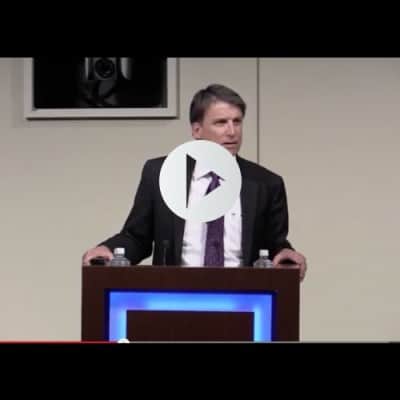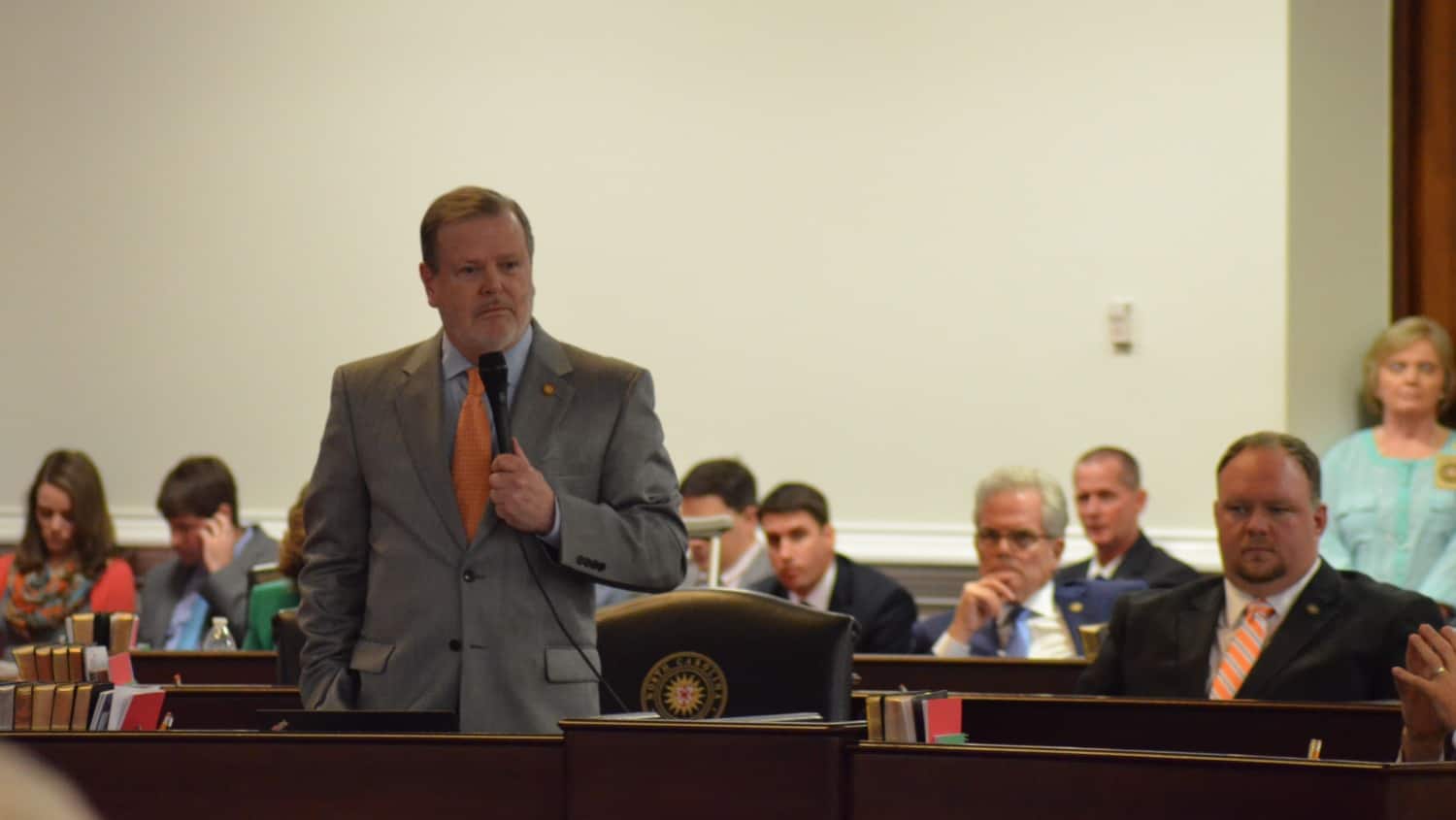The North Carolina Senate voted along party lines to pass a budget proposal for the next two years that provides more than $9 billion for K-12 education — more than $600 million in excess of last year’s budget.
While lawmakers debated the entire budget yesterday, the education portion of the proposal came under scrutiny by democratic legislators.
Sen. Mike Woodard, D-Durham, began an orchestrated debate strategy by calling on various democratic members of the Senate, questioning them on specific parts of the budget. When called on by Woodard, Sen. Terry Van Duyn, D-Buncombe, said a well-trained workforce is key to getting employers to come to North Carolina. She said the Senate’s budget does not do enough to train students for today’s jobs.
“Obviously education is key,” she said. “It is our number one economic development tool.”
She highlighted Governor Roy Cooper’s budget, saying it set up the ambition to make the state a top-10 state for education by 2025.
“If we are going to help students be successful in the classroom and in the workforce, then we need to invest in them at every level,” she said.
In particular, she pointed out differences between the Senate proposal and Governor Cooper’s proposal in terms of teacher pay.
The Senate proposal includes an average teacher pay raise of 3.7 percent this year and 9.5 percent over the biennium. Beginning teachers and teachers with 25 or more years of experience will get no raise. Teachers with 9-14 years would get the biggest raises.
The Governor’s proposal, on the other hand, includes a more than five percent average raise each year for the next two years. In March, Cooper emphasized that he wanted to reverse the trend of omitting raises for veteran teachers.
“The most important component to a successful classroom is an excellent, well-trained teacher,” Van Duyn said.
She said Cooper’s proposal would put the state on track to be best in the Southeast in teacher pay within three years and would bring North Carolina up to the national average in five years.
Sen. Gladys Robinson, D-Guilford, also said Governor Cooper’s budget is stronger on education than the Senate’s proposal.
She pointed to the need to increase per-pupil spending. The recent national rankings from the National Association of Educators(NEA) project North Carolina to be 43rd in the nation this year for per-pupil spending, down from the 2016 final ranking of 42. The projected figure for this year is $8,940, down from $8,955 last year.
At the same time, the state rose from 41st in the nation for teacher pay to 35th nationally in the NEA rankings. Still, Robinson said the Senate is not doing enough on teacher pay.
“Of course the budget does help teacher pay, but the priority here is the billion dollar tax giveaway,” she said.
Later in the debate, President Pro Tempore Phil Berger, R-Rockingham, said when Republicans took control of the General Assembly, the state was 47th in teacher pay, and after years of teacher pay increases under Republican leadership, the state has now climbed up the ranks to 35.
“That’s not good enough, but it’s a whole lot better than 47th,” he said. “And I think we’re going to continue to make improvement in that regard.”
Robinson also noted that while the Senate budget proposal includes more slots for children to attend the state’s pre-K program, it still leaves some with no state-funded early childhood education.
“We still have a waiting list, and we have not included all these kids in terms of pre-K education,” she said.
The Senate budget proposal includes funding for an estimated 1,150 additional children next year and 2,350 children in the 2018-19 fiscal year.
Robinson said the Senate’s budget leaves too much of a burden on counties who already have to pick up education funding needs. She said that in Wake County, local spending on education has risen from 32 to 41 percent from 2014 to 2016, and in Buncombe County, it increased from 25 to 31 percent in that same timeframe.
She said that while big counties can often afford to spend large sums of money on education, small rural counties can not.
“This responsibility belongs to our state,” she said. “And it continues to expand the urban/rural divide.”
Woodard continued to call on other Democratic senators, but was stopped at one point by another Senator who said he was out of order. After consulting the rules, Berger said Woodard could continue. Woodard called on Senator Erica Smith-Ingram, D-Northampton, asking her to expound more on whether the Senate budget proposal puts North Carolina on track to be a top-10 state in education.
“I just do not believe that this Senate budget puts us on the right path to achieve this,” she said.
She said there are certain benchmarks the state must achieve to be on the right track. The benchmarks include a bigger increase in the percentage of four-year olds who can participate in the state’s pre-K program and improving the high school graduation rate.
After Smith-Ingram talked, Woodard said the state is prioritizing the wrong things.
“We can’t keep cooking up new tax schemes for the wealthy, if we want to fulfill our potential as a state,” he said.
Once Woodard concluded his time, Senate Majority Leader Harry Brown, R-Onslow, said that the governor’s budget is similar to budgets passed when the Democrats had control of the General Assembly.
“What the governor’s budget does is basically what a lot of the budgets did, which was spend it all,” he said.
But when the recession hit, he said the Democrats were forced to severely cut education, including teacher pay.
“Teachers got no pay raises for many years because of the philosophy of spend it all,” he said.
Sen. Tommy Tucker, R-Union, pointed out that the Senate budget amounts to more than $9 billion for public education, calling it the single largest appropriation in the state’s history. He said that senators need to have other priorities as well.
“Education is the most important thing we fund, but it’s not the only thing,” he said.
The vote on second reading Thursday was 34-15 with no Democrats voting to approve the measure. Before the final third-reading vote early Friday morning, Sen. Brent Jackson, R-Sampson, offered an amendment that provided funding for more pilot programs to treat opioid addictions. As part of that amendment, language was added to the budget that removes funding for Eastern North Carolina STEM. The amendment also tweaked the language about new schools eligible for the teacher assistant tuition reimbursement pilot program. The amendment passed.
The budget passed its third and final reading along party lines 32-15. The third reading vote was held after midnight because the rules require the two mandatory bill votes happen on different days.
The budget now goes to the House, which will come up with its own separate budget proposal.
Read more about education items in the Senate’s budget proposal here.
Recommended reading





